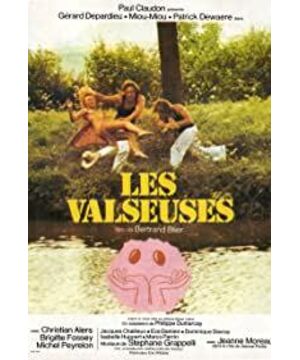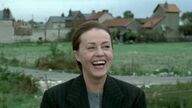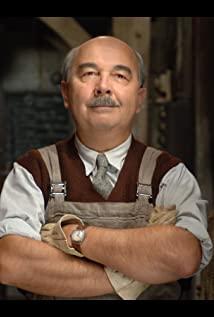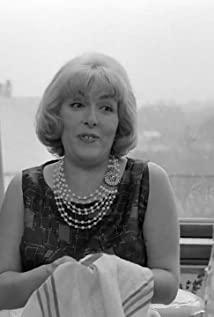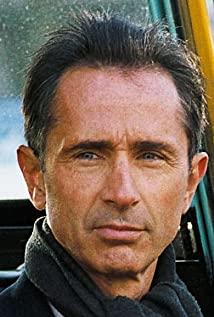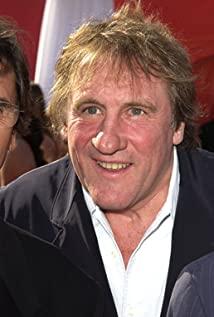Rich hormones and borderline
text / Chen Wei
We don't know how many wonderful things are going to be missed in ignorance. There are many different opinions in this world, and it is always the "hot spots" that are "popular", such as Wong Kar-wai and his "In the Mood for Love", Kubrick and his "A Clockwork Orange", Danny Boyle and his His Psychedelic Train, Hitchcock and his Suspense, or Godard and his Exhausted. Other excellent works, as long as they do not constitute "hot spots", are ignored. How accidental they seem to be discovered by us in the "popularity" one after another. Therefore, there is no time when we can save effort and negligence in our work and study. We must always ignore the laurels of this award and that award on the cover, and ignore the demagogic marks of "four stars" and "five stars". Sensational advertising slogans and titles; instead, we must often deliberately disarm our distaste for vulgar titles and guesswork for garish, sleazy porn and vulgar shootout cover images. Bertrand Blier, this extremely good French director, and his few two or three films that he can find in the domestic market, can only enter our already crowded by this hard accident. The vision of the world shocked our hearts that were gradually numb after being stimulated by many "hot spots".
Few details are known about the director, who was born in 1939. The only information at hand is the introduction in the additional content of the DVD "Waltz Girl", which is still in Japanese and has yet to be translated by someone. I only know that his "Waltz Girl" was filmed in 1973, when he was 34 years old, and one of the characters in his film was 25 years old and the other was 23 years old. Jean-Claude and Pierre, these two young men, lived naked in this world, as if they were no one. They are brimming with the thick and brutish power of excess hormones. They strode through the bustling streets and empty boomtowns, their long hair bouncing up and down with their pace. Their purpose is simple, and every time they rush around without turning back, they are just to solve the urgent needs of the moment: lack of money to grab money; lack of women to chase women; People climbed the train to the end of the road and came to another city; when they needed a break, they broke into the empty room and guessed the age of the girl who went on vacation with her parents by holding the size of the bra cup. The beautiful woman who gets her is demanding of her indifference; it is endless fun to flirt with a young mother with a baby in the empty train compartment; a lot of money is robbery anyway, and it is like running water when it is shot, so there is no need to cherish it; inviting beautiful women When they turned down their request to go to bed after bowling, they didn't force it, they just scolded them for being abnormal; when their imaginations were about to dry up and the excitement of life was about to disappear, they thought of seducing someone just now. Female prisoner released from prison.
Compared with all similar films that show the "power of youth" such as "A Clockwork Orange" and "Psychedelic Train", the most important feature of "Waltz Girl" is its naturalness and ease. Bertrand Blier does not have as many heavy burdens as Kubrick to impose on such subjects. He does not need to criticize or reflect, and he has no intention of implying any "society", "morality" through the subject of "youth". "Or "political" issues, what he wants to show is the real situation of nature, and what he shows is an objective cosmic law. The passion of life and the desire to live are the only things that Bertrand Boullier thinks are important. When the passion of youth and the strong desire for life are lost, it is the day of death. The characters in his films are neither good nor evil, nor can they be easily judged by the concept of "moral right and wrong" of "good and evil". They are very normal people, very normal young people, very normal young people have very normal desires, but most young people did not put their desires into action during their adolescence. Therefore, Bertrand Boullier never set his characters in a situation where they were hunted and killed in a real situation. His purpose was not to reflect the contradictions of the real society. His characters are like a duck to water, in danger of being slightly unbalanced in their smooth, smooth march, and that danger stems only from fear of not knowing their future, not the harm the real world could do to them.
Movies expressing the theme of "power of youth" are very easy to arouse the director's "additional desire" for "greater themes", and once these "greater themes" are added to "power of youth", the director cannot but deliberately exaggerate them. Going straight to its own "real theme", thereby ignoring the capture of the true, natural and meaningful details of the "power of youth" itself. "A Clockwork Orange" is such a model; "Waltz Girl" is also different from them. The most amazing thing about Bertrand Boullier is to make the edge normal. His goal is not the "edge", his goal is "the truth of the edge" that no one can do. He walks on the edge of the edge. This is equally demonstrated in his other domestic market available in "The Waves". Prostitutes and tramps seem to be signs of "alternative" or "marginal", but he can change the image of prostitutes and tramps in our concept that we think we are used to "alternative thinking" in a shocking way. The skill of turning a stone into gold may have been rejected by many film critics because he portrayed a lot of "immoral" details too realistically. Self-righteous eyes, in fact, can not bear the real truth.
There is no way of knowing why the film was named "Waltz Girl", as there is no such character in the film, nor any hint of this character. But Bertrand Boullier can't go too far in giving his films over-the-top titles. If he had known that his film would be rejected by most festivals, it would have been a no-brainer for him to give his film an over-the-top name to win the box office, as we've learned from his latest shot in 1994 at the age of 55. "Waves Too Much" shows that his dreams and passions have not ended, and he needs the material basis of reality to keep them going.
"Waltz Girl" is full of the fresh breath of the natural wilderness, and the characters always have a feeling of spring breeze, just like the characters in Munch's paintings, they can almost walk off the screen in strides. Bertrand Boullier's films are always full of tension, but he is a world apart from the kind of director who shocks audiences by playing with formalist "experiments", to whom his films seem "normal". ", however, it is this apparent "normal", as well as his natural and smooth narrative, and his focus on the life attitude of the characters, the character of the characters, the charm of the plot itself, etc. as the essential content of a work of art , the shock of his films to the audience is more internal.
At the end of "The Ladies of the Waltz", Jean-Claude drives Pierre and their public lover, Marie, in a new car traded in for a stolen car, running wildly on the twisting road on the edge of the cliff, turning every turn. Tearing the hearts of the audience, the background music looks like a relaxed and cheerful male and female chorus, and it seems like a dirge of youth. We watch their cars slip forward unstoppably, feeling the speed of flying and the imbalance of youth. The unique and wonderful danger.
2001/9/22.
View more about Going Places reviews


